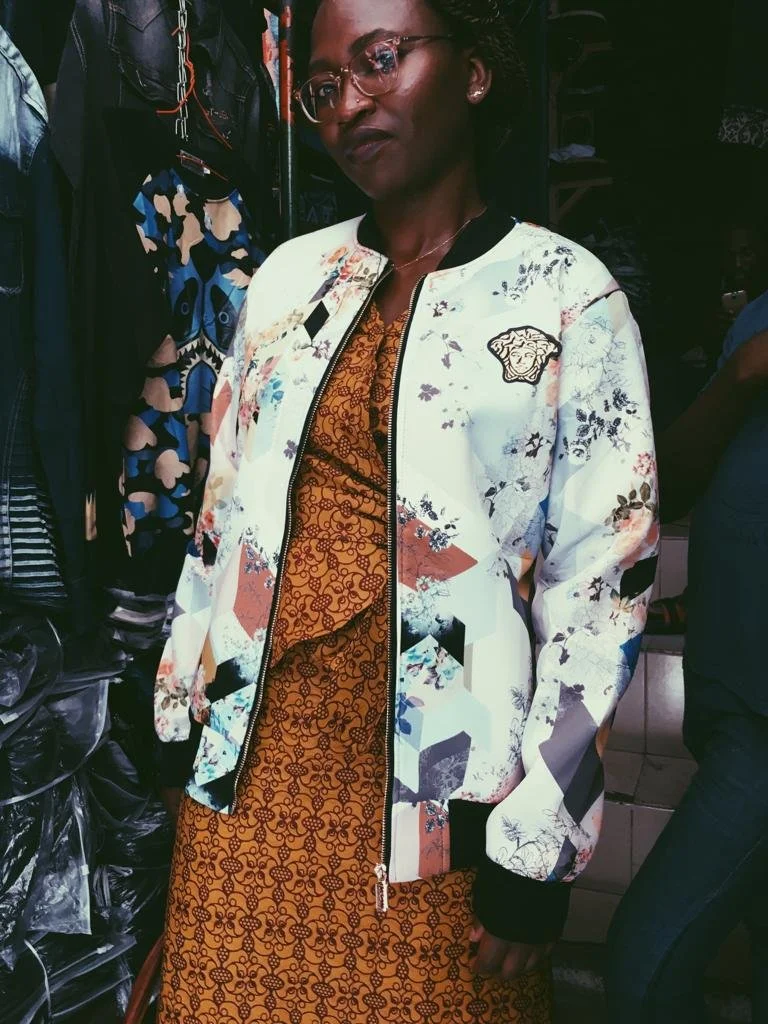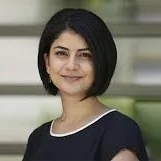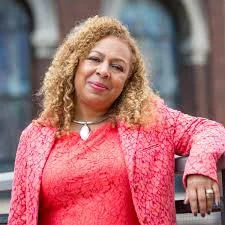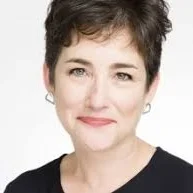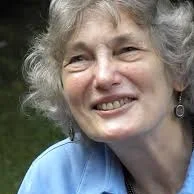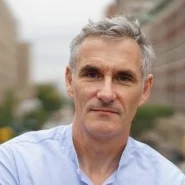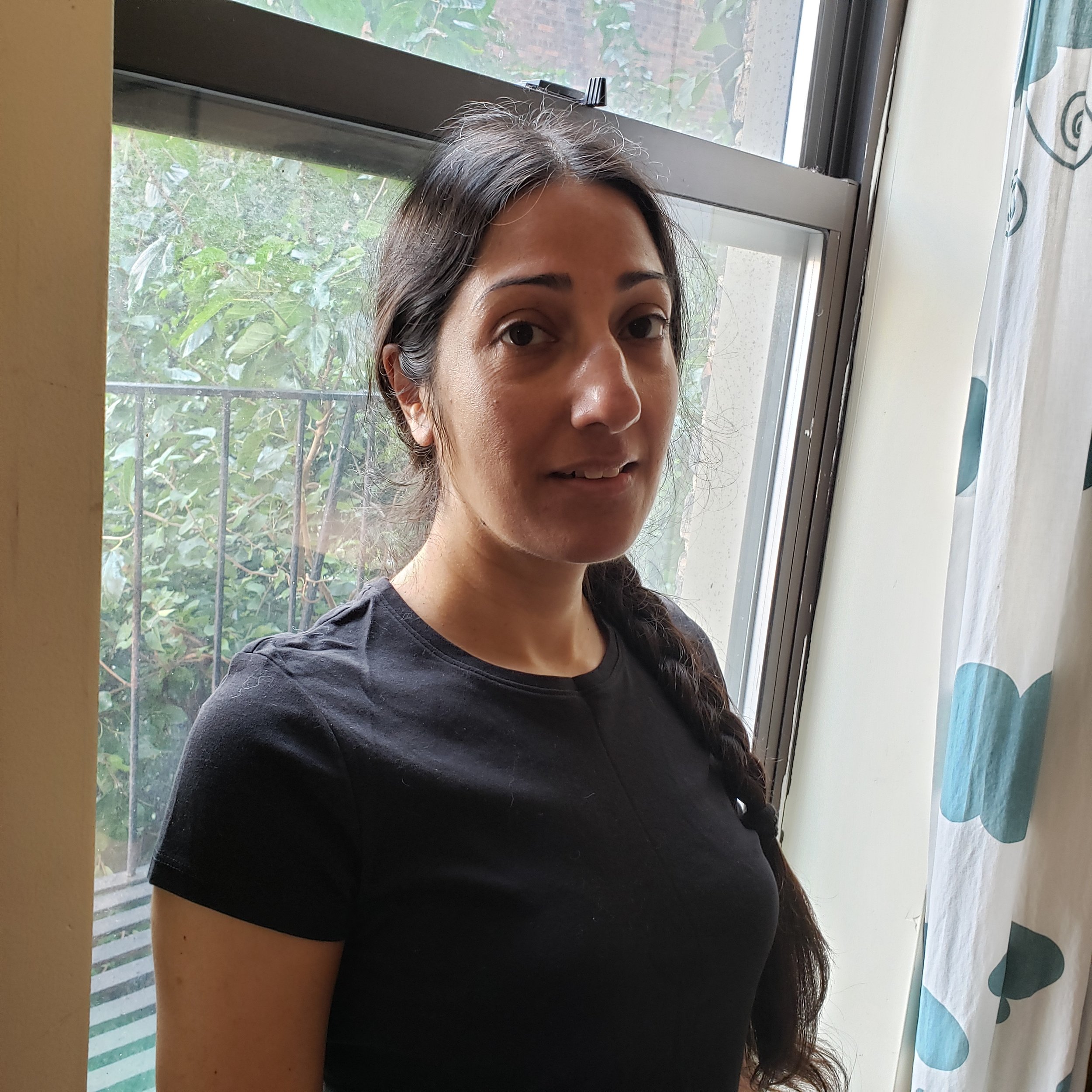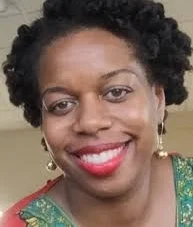Faculty Fellows
Abosede George is the Tow Associate Professor of History at Barnard College and Columbia University in New York. She teaches courses in urban history, the history of childhood and youth in Africa, and the study of women, gender, and sexuality in African History.
Assistant Professor, Department of the Core Curriculum, Columbia University
Turkuler Isiksel (Ph.D., Yale) works in contemporary political theory and is particularly interested in political institutions beyond the nation-state. Professor Isiksel combines the perspectives of normative theory, legal analysis, and institutionalist political science in her research. She is particularly interested in how descriptive and normative categories tailored to the nation-state apply to institutions that wield political power beyond that context.Professor Isiksel is currently at work on a book manuscript that evaluates the extent to which constitutionalism, as a normative and empirical concept, can be adapted to supranational institutions.
Professor, Department of American History, Columbia University
Karl Jacoby has devoted his career to understanding the ways in which the making of the United States intertwined with the unmaking of a variety of other societies—from Native American nations to the communities of northern Mexico—and the ecologies upon which they rested. His scholarship is distinguished by its close attention to questions of narrative and storytelling, in-depth micro-historical approach, and border-crossing nature.
Professor, Department of Women's Gender and Sexuality Studies, Barnard College
Janet R. Jakobsen is Claire Tow Professor and Chair of Women's Gender and Sexuality Studies at Barnard College, Columbia University. She served fifteen years as Director of the Barnard Center for Research on Women (BCRW), and she has also served as Dean for Faculty Diversity and Development.
Senior Research Scholar at the Institute for Social and Economic Research and Policy (ISERP), College of Arts and Sciences, Columbia University
Wilmot James is a Senior Research Scholar at the Institute for Social and Economic Research and Policy (ISERP), College of Arts and Sciences, Columbia University. An academic by background with a Ph.D. from the University of Wisconsin at Madison, he was previously a Member of Parliament (South Africa) and opposition spokesperson on health. Wilmot is the author and/or editor of 17 books that include the policy-oriented Vital Signs: Health Security in South Africa (2020), a set of essays on the public understanding of science titled Nature’s Gifts: Why we are the way we are (2010), a coedited book Biotechnology and Health: South Africa’s aspirations in health-related biotechnology (2007) and a co-edited collection of Nelson Mandela’s presidential speeches Nelson Mandela In His Own Words (2003), the latter having the distinction of containing forwards by Bill Clinton and Kofi Annan and given to the late Nelson Mandela on his 85th birthday.
Associate Professor, Department of Art History and Archaeology, Columbia University
Art historian Dr. Kellie Jones teaches in the Department of Art History and Archaeology as well as the Institute for Research in African American Studies at Columbia University. Her research interests include African American and African Diaspora artists, Latino/a and Latin American Artists, and issues in contemporary art and museum theory. Dr. Jones’s writings have appeared in numerous exhibition catalogues and journals, and her book EyeMinded: Living and Writing Contemporary Art (2011, Duke) was named one of the top art books of 2011 by Publishers Weekly.
Professor, Department of Women’s, Gender, and Sexuality Studies, Barnard College
Rebecca Jordan-Young is Professor and Chair of Women’s, Gender, and Sexuality Studies at Barnard College, Columbia University. A sociomedical scientist, Jordan-Young explores reciprocal relations between biomedical sciences and social hierarchies of gender, sexuality, race, and class.
Assistant Professor, Department of American Studies, Barnard College
Manu Karuka is the author of Empire's Tracks: Indigenous Nations, Chinese Workers, and the Transcontinental Railroad (University of California Press, 2019). He is a co-editor, with Juliana Hu Pegues and Alyosha Goldstein, of “On Colonial Unknowing,” a special issue of Theory & Event, and with Vivek Bald, Miabi Chatterji, and Sujani Reddy, he is a co-editor of The Sun Never Sets: South Asian Migrants in an Age of U.S. Power (NYU Press, 2013).
Associate Professor, Department of English, Barnard College
Jennie A. Kassanoff is the author of Edith Wharton and the Politics of Race (Cambridge, 2004). Her research focuses on post-Civil War American culture. She is currently at work on a book about voting, race and gender in American culture, the working title of which is Voter Writes. Her essays have appeared in various books and journals, including American Literature, American Literary History and PMLA. She teaches courses in nineteenth- and early twentieth-century American literature and culture and has earned both of Barnard's major teaching awards: the Teaching Excellence Award in 2003 and the Emily Gregory Award in 2011.
Fellow, Human Rights, Columbia University
Purvaja Kavattur is a staff associate at the Institute for the Study of Human Rights at Columbia University. She currently is working on a review of menstrual health policies in Senegal, Kenya, India, and the United States.
Professor, Department of American History, Columbia University
Alice Kessler-Harris, R. Gordon Hoxie Professor of American History. She is also Professor in the Institute for Research on Women and Gender. Dr. Kessler-Harris specializes in the history of American labor and the comparative and interdisciplinary exploration of women and gender. She received her B. A. from Goucher College (1961) and her Ph.D. from Rutgers (1968). Her most recent published works include: In Pursuit of Equity: Women, Men and the Quest for Economic Citizenship in Twentieth Century America (2001) and A Difficult Woman: The Challening Life and Times of Lillian Hellman (2012).
Professor, Department of Anthropology, Barnard College and Columbia University
Brian Larkin is Professor of Anthropology at Barnard College and Columbia University and the author of Signal and Noise: Media Infrastructure and Urban Culture in Nigeria (Duke University Press, 2008). With Lila Abu-Lughod and Faye Ginsburg he co-edited Media Worlds: Anthropology on New Terrain (University of California Press, 2000). His research examines the introduction of media technologies in Nigeria – cinema, radio, digital media - and the religious, political, and cultural changes they bring about.
Professor, Department of Italian, Columbia University
Elizabeth Leake's research interests include Twentieth Century narrative and theatre, psychoanalytic, ideological, and disability studies in Italian literature, fascist Italy, Italian cinema, and early Danish cinema. She is a recipient of the Modern Language Association Aldo and Jeanne Scaglione Publication Award for a Manuscript in Italian Literary Studies for her book The Reinvention of Ignazio Silone (2003). Her latest book, After Words: Suicide and Authorship in Twentieth Century Italy, was published in February 2011.
Associate Professor, Department of Latin American and Iberian Cultures, Columbia University
Ana Paulina Lee is Associate Professor of Latin American and Iberian Cultures at Columbia University. She is the author of Mandarin Brazil: Race, Representation, and Memory (Stanford University Press).
Professor, Department of Education, Teachers College
Nancy Lesko's interests center around curriculum theory and history, conceptions of children and youth in theory and practice, gender issues in education, and citizenship education in times of war. Her recent publications include "Denaturalizing adolescence: The politics of contemporary representations" (Youth & Society); "Past, present, and future conceptions of adolescence" (Educational Theory); "The leaky needs' of school-aged mothers: An examination of US programs and policies" (Curriculum Inquiry); Act Your Age: A Cultural Construction of Adolescence (Routledge Press); Masculinities at School (Sage Press); Reducing the Risk: Schools as Communities of Support (Falmer Press).
Assistant Professor, Department of History, Columbia University
Natasha Lightfoot teaches Caribbean, Atlantic World, and African Diaspora History focusing on the subjects of slavery and emancipation, and black identities, politics, and cultures. She received her B.A. in History from Yale University and her M.A. and Ph.D. in History from New York University. She has received fellowships from the Yale Gilder-Lehrman Center for the Study of Slavery, Emancipation & Resistance, the American Antiquarian Society, and the Ford Foundation. She has published articles in the CLR James Journal and Slavery & Abolition. Her forthcoming book, Troubling Freedom: Antigua and the Aftermath of British Emancipation, 1831-1858 focuses on black working people’s struggles and everyday forms of liberation in Antigua after slavery’s end.
Professor, Department in the Humanities, Columbia University
Lydia H. Liu is a theorist of media and translation, a scholar of comparative literature, and a bilingual writer in Chinese and English. She is the Wun Tsun Tam Professor in the Humanities and the Director of the Institute for Comparative Literature and Society at Columbia University.
Professor, Department of of Anthropology, CSER and Latino/a Studies, Columbia University
Professor Claudio Lomnitz works on the history, politics and culture of Latin America, and particularly of Mexico. His first book, Evolución de una sociedad rural (Mexico City, 1982) was a study of politics and cultural change in Tepoztlán, Mexico. Following the publication of this book, he developed an interest in conceptualizing the nation-state as a kind of cultural region, a theme that culminated in Exits from the Labyrinth: Culture and Ideology in Mexican National Space (California, 1992). In that work, he concentrated on the social work of intellectuals, a theme that he developed in various works on the history of public culture in Mexico.
Professor, Department of Government MESAAS, International Affairs, and Anthropology, Columbia University
Mahmood Mamdani specializes in the study of African history and politics. His works explore the intersection between politics and culture, a comparative study of colonialism since 1452, the history of civil war and genocide in Africa, the Cold War and the War on Terror, and the history and theory of human rights. He has received numerous awards and recognitions, including being listed as one of the 'Top 20 Public Intellectuals' by Foreign Policy (US) and Prospect (UK) magazine in 2008. His most recent books include Saviors and Survivors: Darfur, Politics, and the War on Terror (2009); Good Muslim, Bad Muslim: America, the Cold War and the Roots of Terror (2004).
Professor, Department of English and Comparative Literature, Columbia University
Sharon Marcus is Dean of Humanities and co-founder and co-editor in chief of Public Books, a bimonthly review of books, arts, and ideas. A literary critic, cultural historian, and feminist theorist, Sharon Marcus is the author of two books: Apartment Stories: City and Home in Nineteenth-Century Paris and London (University of California Press, 1999), and the prize-winning Between Women: Friendship, Desire, and Marriage in Victorian England (Princeton: 2007). She has guest edited several special issues of scholarly journals, including a controversial 2009 issue of Representations, "The Way We Read Now" (co-edited with Stephen Best).
Professor, Department of Architecture, Graduate School of Architecture, Planning, and Preservation, Columbia University
Reinhold Martin is a founding co-editor of the journal Grey Room and has published widely on the history and theory of modern and contemporary architecture. He is the author of The Organizational Complex: Architecture, Media, and Corporate Space (MIT Press, 2003), and Utopia’s Ghost: Architecture and Postmodernism, Again (Minnesota, 2010), as well as the co-author, with Kadambari Baxi, of Multi-National City: Architectural Itineraries (Actar, 2007). His most recent book, The Urban Apparatus: Mediapolitics and the City was published in 2016 from the University of Minnesota Press. Currently, Martin is working on a history of the nineteenth century American university as a media complex.
Professor, Department of Psychology, Columbia University
Caroline Marvin is a Lecturer and the Director of Instruction and Academic Affairs in the Department of Psychology at Columbia University, where she oversees curriculum- and teaching-related needs of the department. Dr. Marvin also serves as Director of Undergraduate Studies for the Neuroscience & Behavior major, advising and mentoring undergraduate students pursuing study in neuroscience. Dr. Marvin’s research focuses on curiosity -- what motivates people to seek and learn new information, how curiosity takes shape in response to various types of information and differing contingencies, how the motivation to learn ultimately influences memory, and how curiosity may change throughout the lifespan.
Associate Professor, Department of Education, Barnard College
Maria S. Rivera Maulucci, Associate Professor of Education, joined the faculty of Barnard in 2004. She is a proud member of the Class of 1988 at Barnard and serves as Co-Fund Chair. Prior to coming to Barnard, Maria served as Director of the Science Professional Development Center for Region One in the Bronx. Her expertise in science pedagogy and teacher education draws on 16 years of experience teaching at the elementary, secondary, and postsecondary levels. Her interdisciplinary scholarship focuses on how teachers learn to teach for social justice and the role of language, identity, and emotions in teacher development. Professor Rivera is the Principal Investigator for the Barnard College Robert Noyce Teacher Education Scholars Program (BNTSP) funded by the National Science Foundation.
Professor, Department of Architecture, Graduate School of Architecture, Planning, and Preservation, Columbia University
Mary McLeod teaches architecture history and theory, and occasionally studio. Her research and publications have focused on the history of the modern movement and on contemporary architecture theory, examining issues concerning the connections between architecture and ideology. She is co-editor of Architecture, Criticism, Ideology and Architecture Reproduction, and is the editor of and contributor to the book Charlotte Perriand: An Art of Living (Abrams, 2003). She also initiated and helped curate the exhibition Charlotte Perriand: Interior Equipment, held at the Urban Center in New York.
Assistant Professor, Department of Sociology, Columbia University
Tey Meadow is assistant professor of sociology at Columbia. She is the author of Trans Kids: Being Gendered in the Twenty-First Century, and the coeditor of Other Please Specify: Queer Methods in Sociology. Her work has appeared in Gender & Society, Sexualities, Contemporary Ethnography, Race & Ethnic Studies, Politics & Society and a number of edited volumes.
Professor, Department of Philosophy, Columbia University
Christia Mercer is the Gustave M. Berne Professor of Philosophy at Columbia University, general editor of Oxford Philosophical Concepts, and co-editor of Oxford New Histories of Philosophy, a book series devoted to making philosophy more inclusive. As a part-time activist, she teaches in prison as part of Columbia University’s Justice-in-Education Initiative and publishes regularly on the need to make higher education more widely available and on justice reform.
Jennifer Middleton is a Lamont Assistant Research Professor in the geochemistry division of the Lamont-Doherty Earth Observatory at Columbia University. Her research seeks to better understand the inner workings of Earth’s climate system using the chemical fingerprints of present-day phenomena and geologic records of Earth’s climate history. This work helps guide predictions for the way the oceans, atmosphere, ice sheets, and land surface will continue to respond to human-driven emissions of greenhouse gases. Middleton is committed to the promotion of justice, diversity, equity, and inclusion in STEM (Science, Technology, Engineering and Math) and in considerations of society’s best paths forward in the face of modern climate change.
Assistant Professor, Department of Epidemiology, Columbia University
Dr. Strasser is a public health professional with 30 years of experience in nursing and public health. She is the senior director for human resources for health (HRH), providing leadership, guidance and direction for the development, implementation, and assessment of programs to develop human resources for health across ICAP's portfolio of programs.
Assistant Professor, Department of Theater, Barnard College
Shayoni Mitra is an Assistant Professor of Theater at Barnard College. Professor Mitra works at the intersection of performance and politics. Her interest in political theatre stems from her years as an actor with Delhi based street theatre group Jana Natya Manch. She is currently revising toward publication her manuscript, “Contesting Capital: A History of Political Theatre in Postcolonial Delhi,” which interrogates the ever shifting, adapting expressions of political theatre under different configurations of power. It is a historical look at both proscenium and street theatre from the decade of Independence in the 1940s to the twenty first century. The manuscript covers a range of styles including folk and revolutionary singing troupes, large open-air performances, topical agit-prop plays, intimate and improvized activist pieces and feminist performances.





